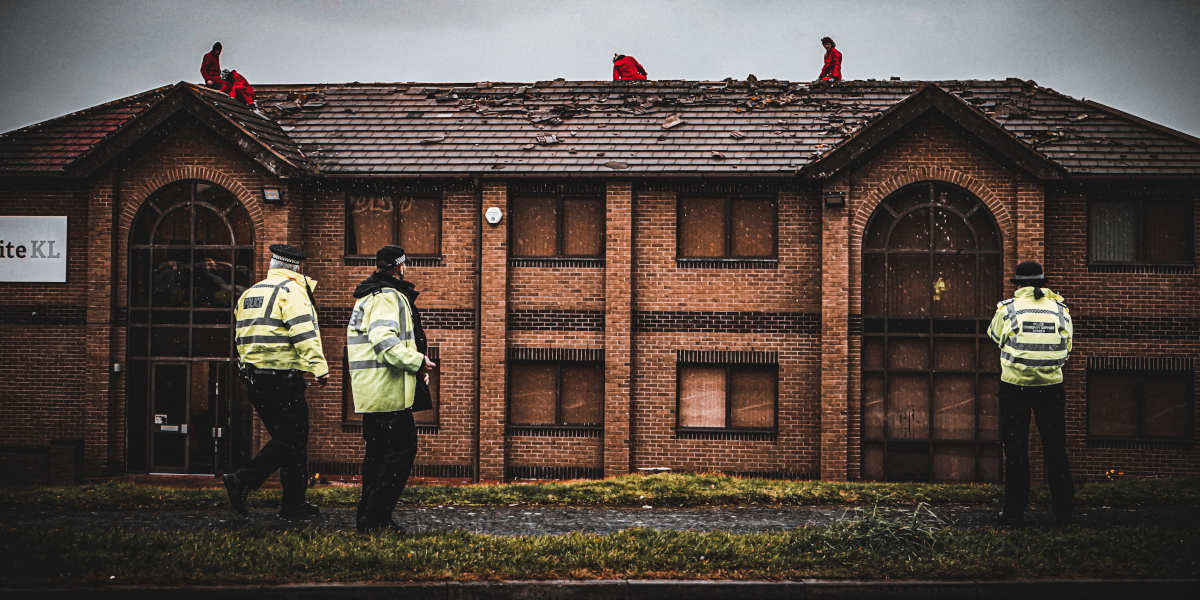In February 2022, Amnesty International published a seminal report on Israel that should have been a trigger for countries to end their supply of weaponry to the regime (Israel’s Apartheid Against Palestinians: A Cruel System of Domination and a Crime Against Humanity). The UN adopted an arms embargo against apartheid South Africa in 1977; it’s time global leaders took this preventative measure against Israel.
Instead, those with the power to sanction Israel reacted against the report. In the US, Israel’s largest arms supplier, Congress rejected it as ‘anti-semitic’, while in the UK, its fourth largest arms provider, the government launched a consultation on increasing trade with Israel one day after the report’s release.
Britain sold £387 million in weapons to Israel between 2016 and 2020 and continues to supply them. Elbit Systems, the company responsible for up to 85 per cent of land-based equipment sent to Israel, has ten sites across the UK. These produce armed drones, ammunition and other technology, which have killed over 3,600 Palestinians, many of them children.
While those in power will not halt this atrocity, campaigners are struggling to influence them. Organisations including Amnesty International, War on Want and the Palestine Solidarity Campaign have long called for an arms embargo to no avail.
Last remaining strategy
In 2020, the insufficiency of standard protest tactics became obvious to Huda Ammori, an activist of Palestinian and Iraqi descent. At university she had established a Boycott, Divestment, Sanctions (BDS) group. She leafleted, petitioned, protested and lobbied about 70 MPs without seeing change. Her final hopes were pinned on Labour’s 2019 manifesto pledge to impose an arms embargo on Israel. When the party lost the general election, she knew she could not continue in this vein.
‘Labour’s manifesto was the vehicle for change we all depended on,’ Ammori says, ‘and when that didn’t work I realised we had to do things differently.’ Sustained direct action, whereby activists disrupt the source of a problem rather than lobbying the state, was the last remaining strategy she could imagine working. ‘It was clear that the only way we could stop Elbit was by shutting it down ourselves,’ she explains.
The group has occupied and sabotaged Elbit’s sites almost fortnightly over the past two years, while the number of activists involved has risen from two to more than 2,000
Ammori had heard how activists from the Derry Anti-War Coalition had successfully expelled one of the world’s largest arms manufacturers from Northern Ireland through direct action. After years of campaigning, nine activists broke into Raytheon Technology’s factory in 2006 to destroy paperwork and computers in a high-profile action that eventually forced the company to shut its doors there in 2010.
Learning from this victory, she launched a UK-based direct action group, Palestine Action, along with former Extinction Rebellion activist Richard Barnard. Their plan was simple: repeatedly protest, occupy and damage Elbit’s properties across the UK until disruption and financial losses end their UK operations.
We will be back
In the early hours of one morning in August 2020, four activists staged Palestine Action’s first action against Elbit. They threw red paint over the company’s London headquarters and daubed it with the message: ‘We will be back.’ Their first occupation the following month confirmed their intentions, with activists breaking into Elbit’s UAV Engines factory in Staffordshire.
True to their word, the group has occupied and sabotaged Elbit’s sites almost fortnightly over the past two years. The number of activists involved has risen from two to more than 2,000. And while soft campaign work in support of Palestine has faltered for decades, the group’s audacious tactics are already having effect.
For the first time, communities living near Elbit’s sites know they have an arms factory as a neighbour. Activists who have faced arrest have been acquitted in every trial so far and, most notably, one factory in Oldham has already closed. After 18 months of direct action, ten security breaches and weeks of forced closure, Elbit sold one of its five UK subsidiaries, Ferranti Power and Control, despite previously flaunting its potential. The £9 million it fetched fell short of the £15 million in damage carried out by Palestine Action.
Uprooting the source
This success is a testament to the power of direct action, as demonstrated not only by the Derry Anti-War Coalition but many other UK movements. Ammori and Barnard drew on Extinction Rebellion’s disruptive tactics, which helped it become one of the fastest-growing climate movements in history and forced Theresa May’s government to declare a climate emergency. Years prior, Tony Blair felt the most pressure from direct action rather than softer campaign tactics, when the mass blocking of oil refineries by fuel tax protesters in 2000 prompted his government to compromise on price hikes, in contrast to its response to the millions of people who marched against the war on Iraq. Palestine Action is also part of a long tradition of activists protesting and occupying Elbit factories – for example, the previously established network London Palestine Action organised a mass action at a factory in 2015.
The moral obligation to act when lives are at stake is clear in the case of Palestine. Amnesty International’s report is the third to assert that Israel is an apartheid state – a fact Palestinians have been trying to convey for decades. Yet despite Israel’s repeated condemnation, Britain continues to stoke abuse there, as it has done for more than a century. To bypass the stubborn complicity of those in power, direct action cuts off Israel’s arms supply at its roots.
Since the print publication of this article in June 2022, Palestine Action has successfully shut down Elbit’s headquarters in London.











